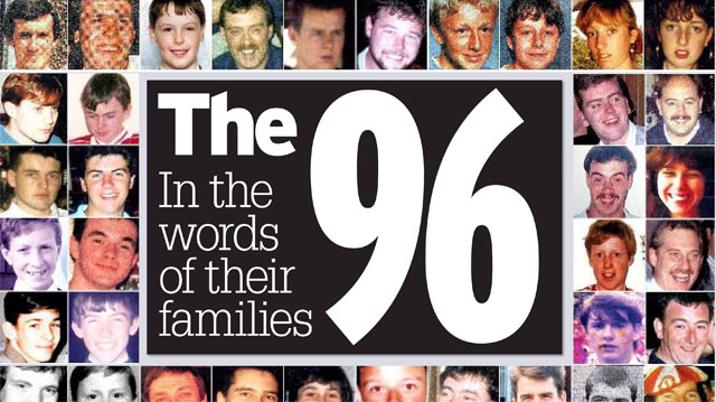
When I started as an idealistic trainee reporter 40 years ago, I really believed that part of my job was to shine a light in dark corners. I was there to uncover wrong-doing, deflate the pompous and expose hypocrisy. That I was working in the same field as Woodward and Bernstein, albeit while covering Silver Jubilee parties and North Shields magistrate court, kept me motivated. My first success was getting a family re-housed from their rat-infested squalor. I will never forget the hug of gratitude from the tearful mother.
When I moved to The Northern Echo, I was inspired by previous editors WT Stead - who saw the job as a glorious opportunity for attacking the devil - and Sir Harold Evans. Investigative journalism was in the Echo's DNA … and we weren't alone. Regional newspapers have a proud history of getting things done. If they didn't change the world they could, and regularly would, change their communities.
But can campaigning and investigative journalism realistically survive in dwindling newsrooms amid the relentless drive towards digital hits? When a dancing cat delivers a bigger audience than a six-week investigation into town hall jiggery-pokery, can managements - and even editors - justify time for serious spadework?
Section 40
Another threat to investigative work comes with pending legislation. Section 40 of the Crime and Courts Act threatens to force newspapers to pay both sides' costs in privacy and libel cases … even if the reporting is accurate and in the public interest. It will be a massive disincentive for editors to shine their lights in those dark corners, knowing that if they uncover something nasty, it will cost them. The Society of Editors has been working hard, with its Save Your Right To Know campaign, to scuttle Section 40.
Executive director Bob Satchwell says: “It will have a chilling effect on editors who simply will not be able to risk the existence of their papers through legitimate investigations. Where would the public interest lie in fewer investigations and closed papers?”
But, even if this ludicrous proposal is crushed, can there really be a future for regional campaigns and investigations?
"Absolutely there is," says Neil Benson, editorial director of Trinity Mirror regionals.
"Good campaigns set us apart from other media channels. Despite the difficulties, we still have more boots on the ground and a better understanding of our communities than any other media."
Digital helps!
Like other editors, Benson believes digital has helped, not hindered, investigative work.
"The vast amount of information available on the internet makes investigations much more do-able, at lower cost and with a higher chance of success - provided you know where to look and the questions to ask.
"In the digital age, it's important that we look at different ways of doing investigative journalism. One example is TM's investment in a nine-strong data journalism unit, which produces investigative and informational content for our titles."
Trinity Mirror titles have certainly shown no sign of diminishing their campaigning zeal. Benson reckons his 150 titles run around 1,000 campaigns or investigations a year - some big and complex, some short and simple.
Shine a light
One of the biggest was by the Liverpool Echo, which campaigned for 27 years to get justice for the 96 people killed at the Hillsborough disaster. At the Regional Press Awards, editor Alastair Machray received an award from Trevor Hicks, who lost two daughters at Hillsborough. Machray told his peers: "We are there to hold power brokers to account and to shine a light on where there is darkness. Of all we do, there is surely nothing more important than that."
The Echo campaigns on a broad range of issues. Its Share Your Lunch campaign, aiming to feed families, has just raised £40,000 for 20,000 meals. Machray says: "At the risk of sounding pompous, the main motivation is to make a difference. In this case, it's to feed hungry people. We can't accept a Merseyside where kids are hungry."
Another TM title, the Hull Daily Mail, identifies two or three major issues a year as well as flash campaigns. Its ongoing campaign is Kids in Crisis, highlighting the lack of mental health support for young people. Its success is down to painstaking research and the contacts of health reporter Allison Coggan. But deputy editor Jamie Macaskill also recognises that online information has made it easier. "The move to digital has heightened our ability to sense trends and concerns in the local community, to see what subjects we can investigate."
Few regional papers devote as much to campaigns and investigations as the Birmingham Mail and Sunday Mercury. Content editor Andy Richards won the Local Hero award at the British Journalism Awards for his work seeking justice for the families of the 21 killed in the 1974 pub bombings. Investigations editor Jeanette Oldham was highly commended. She won the award the previous year for her investigation into child sexual exploitation. Oldham's investigative record is remarkable. All credit to her - and her Trinity Mirror bosses.
But whereas campaigns win awards and are good for the journalist soul, do they have any benefit to the business?
"It's hard to say," Benson says.
"Campaigns don't often make a tangible difference in newspaper sales terms but they can drive strong online interest and engagement, as well as follow-up angles. From a reader perspective, we would hope our campaigns drive tangible community benefits - otherwise, why are we doing them?"
Remaining relevant
Johnston Press has also created an investigations team to cover stories across the group. The team of reporters from each region is co-ordinated by Tim Robinson and led by investigative journalist Aasma Day. It aims to produce a detailed investigation for all titles, including the i, every six weeks. Its first, Drive for Justice, examined lenient sentencing for causing death by dangerous driving.
JP monitors sales and digital audiences on the back of its campaigns but Robinson says remaining relevant is just as important. Jeremy Clifford, editor-in-chief, agrees: "Investigative journalism - and holding those in authority to account - is at the very core of our business and of the communities we serve. We can ultimately change the law and people’s lives.”
Archant also has a central investigations unit. The team of three, based in Norfolk, Suffolk and London, was set up by Norwich Evening News editor David Powles. The team ensures the group's journalists try their hands at investigations and that managers protect time.
Archant runs around six full-on campaigns a year. Its Mental Health Watch campaign, running since 2015, continues to fight for better services and to reduce the stigma of mental health. Powles believes the team's work is "absolutely vital".
"It isn't enough that we just do community stories, cover events, make people laugh, entertain them - we still want to make our readers think, move them or add to their knowledge."
"Campaigns and investigations are what give us the edge over the million and one rivals vying for our readers' attentions."
So, newspapers are still fighting the good fight but have they cut back? Editor of the Dundee Courier, Richard Neville, reckons his title is doing more campaigning and investigating than five years ago. Last year, it won a Making a Difference award for its Frank's Law campaign. It supported the widow of Dundee United legend Frank Kopel, who was not given free care for dementia until he turned 65, two weeks before his death.
Neville accepts campaigns are expensive in time and manpower - but believes his readers have come to expect them. They are an essential part of the Courier's make-up.
The weeklies
Campaigning isn't just the domain of daily papers. The weekly Hereford Times' One in Eight appeal - named after the number of women affected by breast cancer - won Campaign of the Year at the Regional Press Awards. It raised £60,000 for a breast cancer support centre.
The Kent Messenger Group also has a campaigning reputation. The Kentish Gazette raised cash for families after a blaze ripped through their newly-built flats. But it also investigated how the flats were built and lobbied for a change in building regulations.
The KM campaigns are often strongest when they throw their weight behind children. The Herne Bay Gazette's Get Ruben Moving campaign is on target to buy a sports wheelchair for a nine-year-old disabled boy. The East Kent Mercury and Dover Mercury are raising money for a 16-year-old who needs £1million for lifesaving surgery in America.
Editor Leo Whitlock says: "If people cannot turn to us to fight on their behalf, where else can they turn? They can vent their spleen on social media but it takes a newspaper to pull it all together."
A detailed look at the work of regional newspapers makes it clear that, despite the challenges, campaigning and investigating is thriving. It is reassuring that many editors believe it is their core journalistic role. Some told me that if their paper stopped campaigning and investigating, they would have to look seriously at their position.
So, there is still a commitment to shining the light. But it is clear that much remains uncovered and undone. Some areas are not served by campaigning titles and the further erosion of newspapers will be hugely damaging to communities up and down the land.
If newspapers aren't there to do the digging who will be? Some editors, though, remain optimistic.
Alastair Machray says: "We will reach the point where digital revenue growth exceeds print revenue decline and we will be back in growth and begin to have the financial confidence to invest in campaigns and investigations more wholeheartedly." It is going to be a long haul. First though, journalists have one crucial campaign on their hands … to ensure that the ill-conceived Section 40 of the Crime and Courts Act is fully snuffed out.












